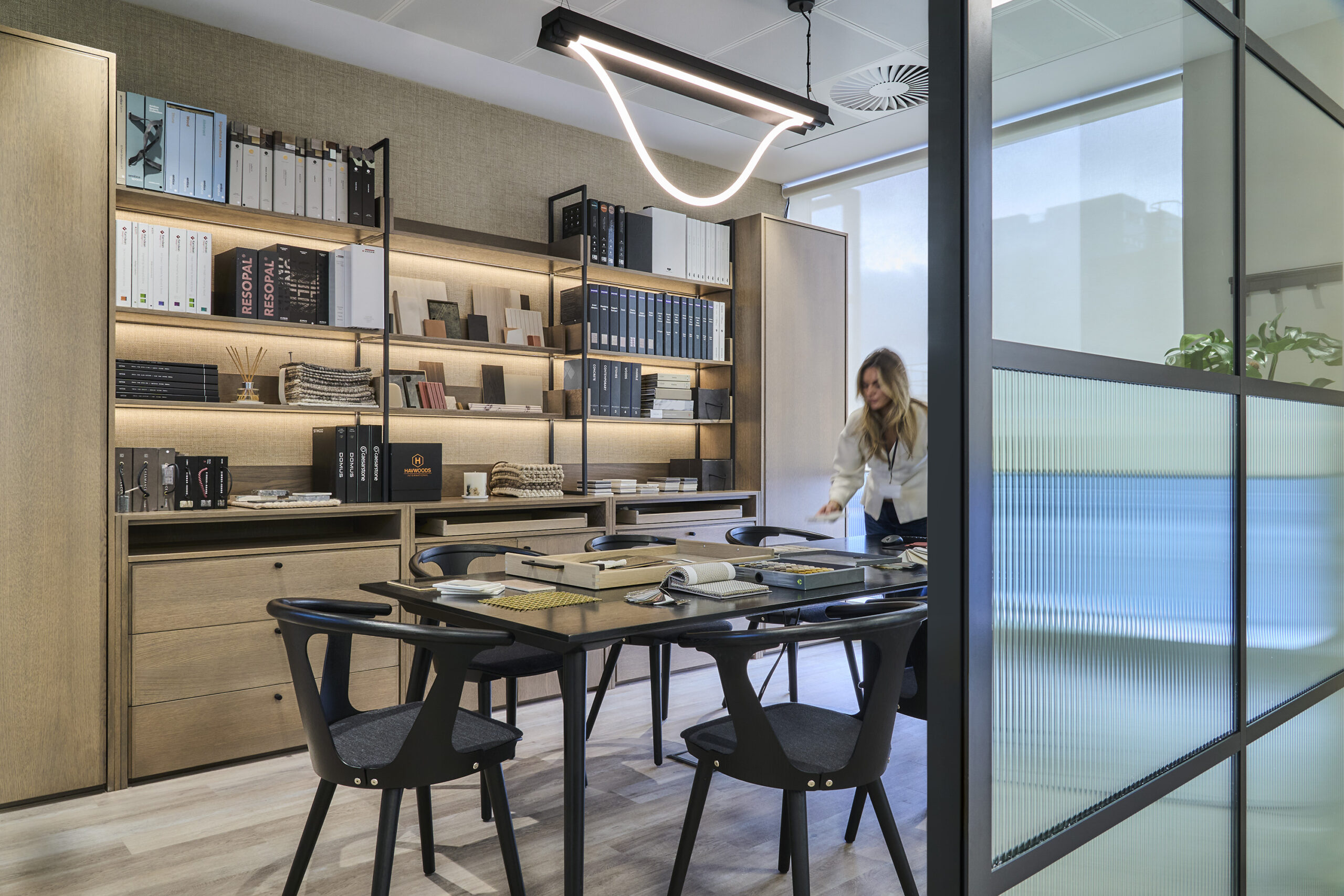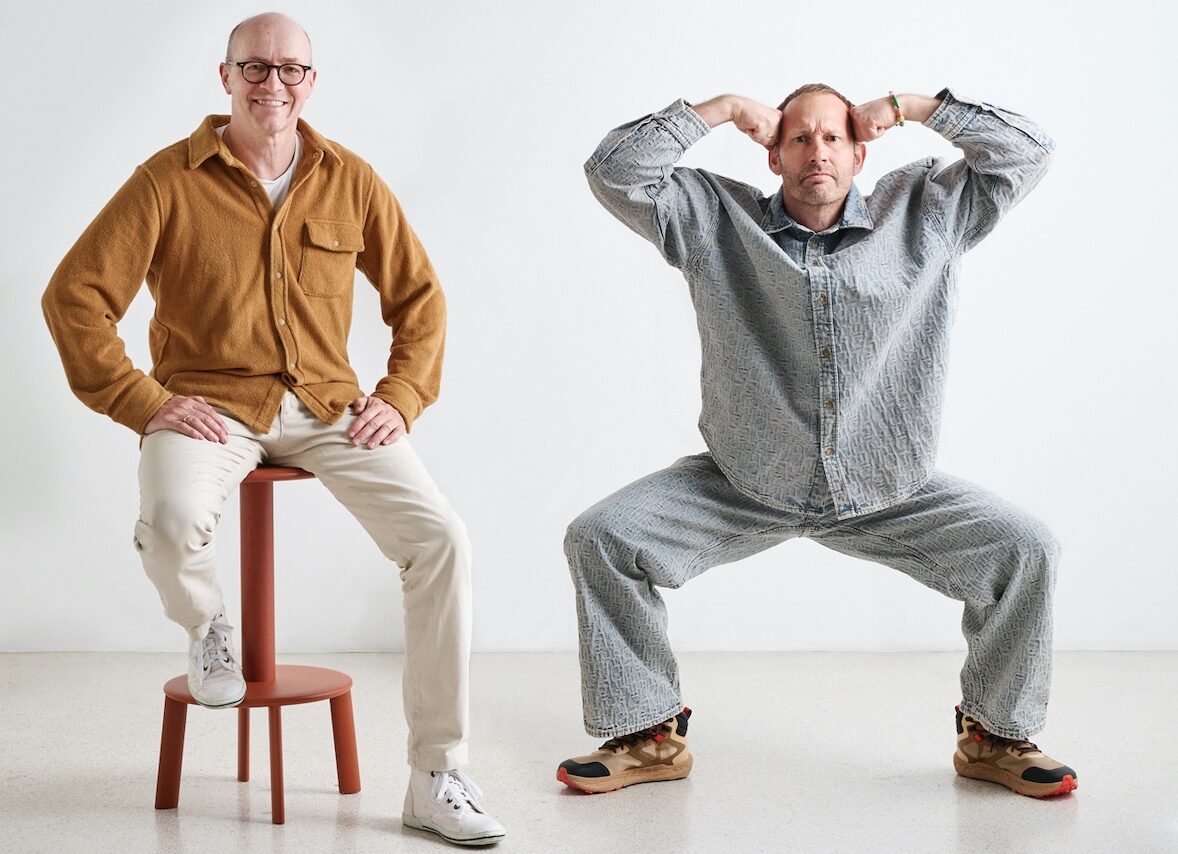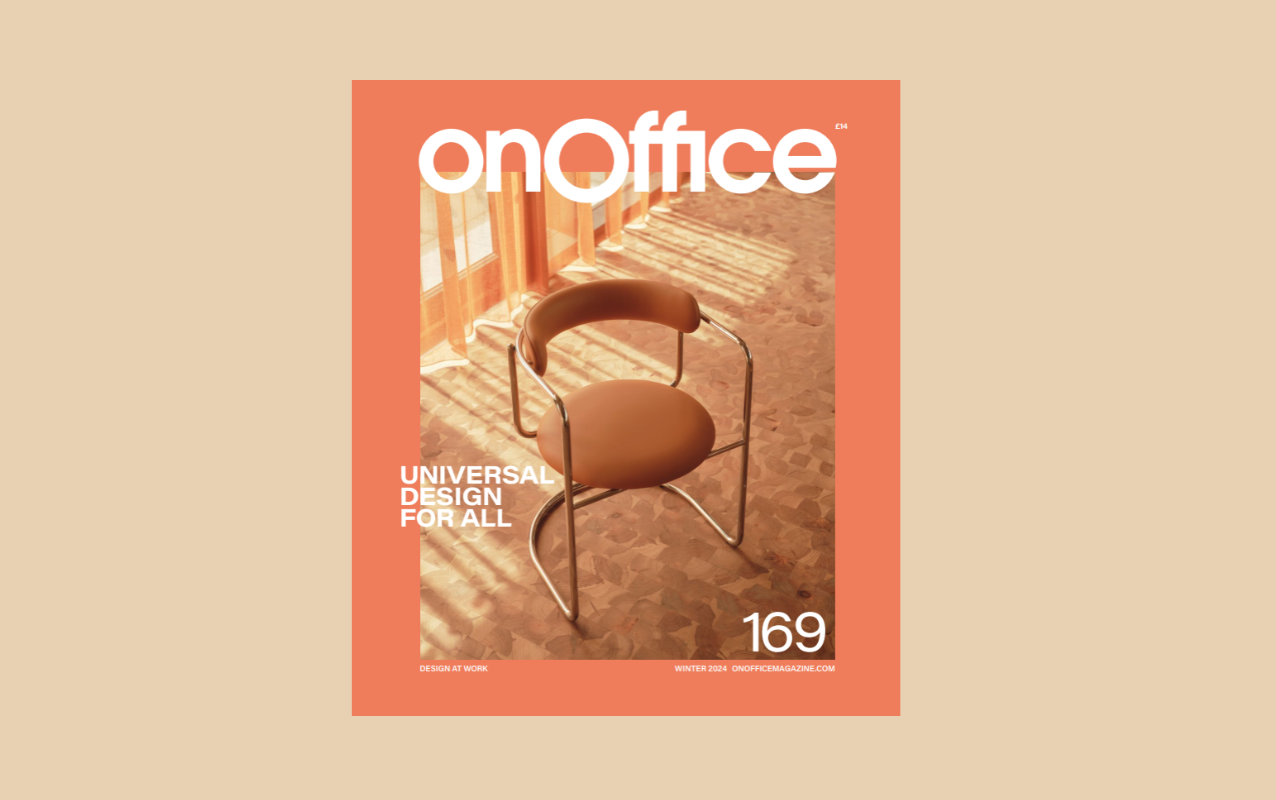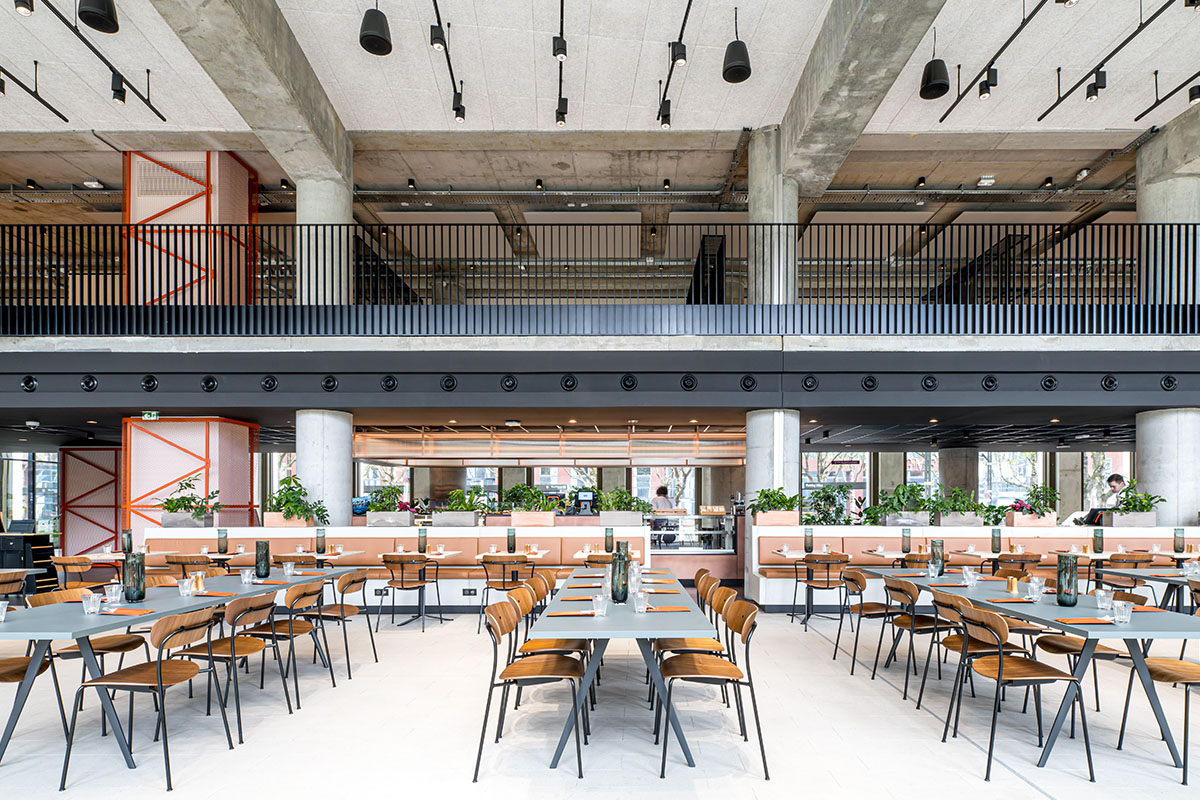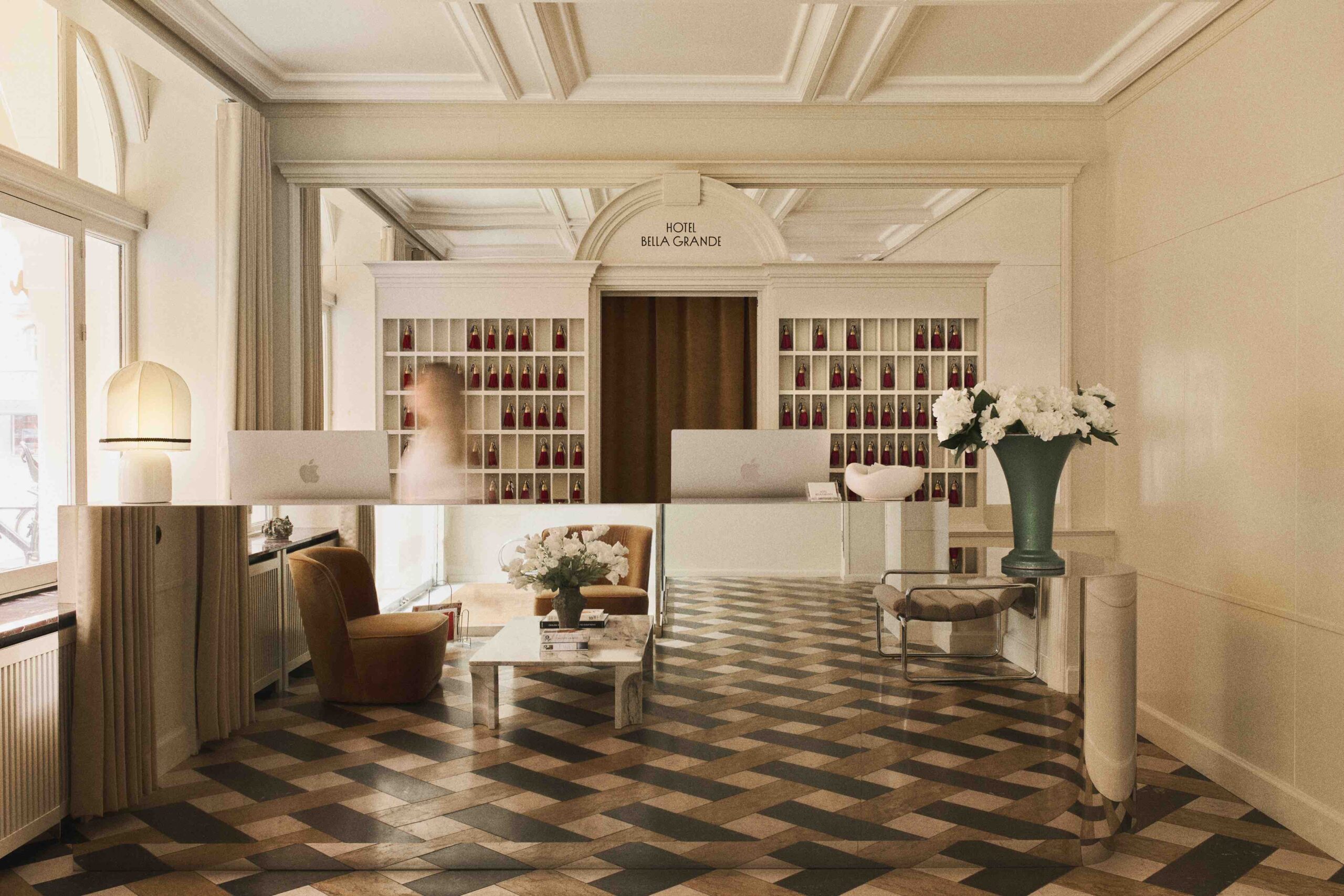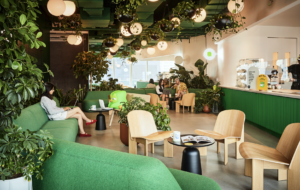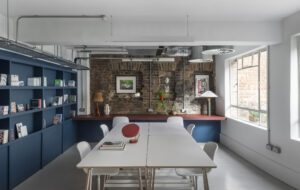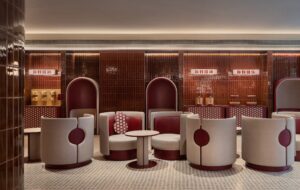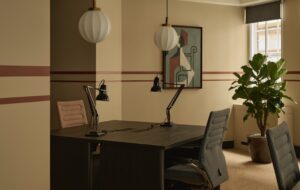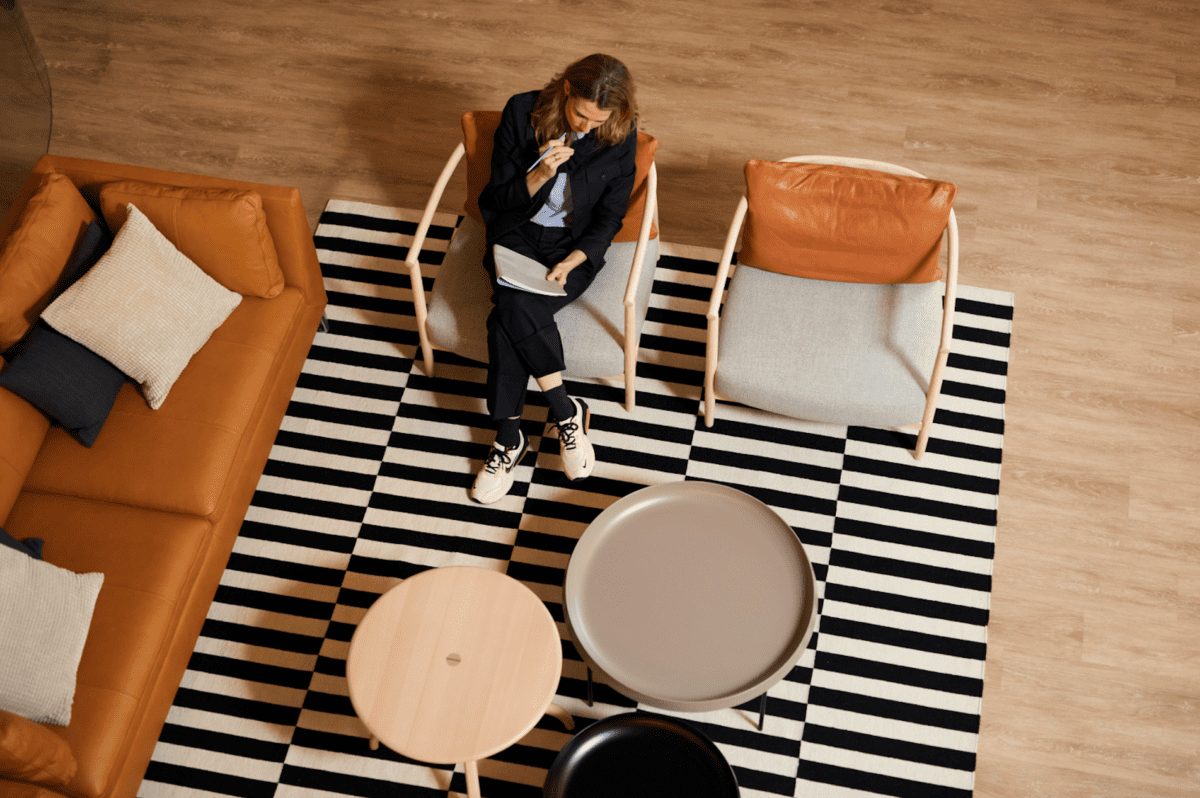
Furnishing an office is time-consuming and frequently wasteful. Now Scandinavian firm Nornorm has come up with a design-led, circular-economy approach that rethinks the whole process
Out of sight, out of mind seems a common attitude to landfill sites. But the United States Environmental Protection Agency’s finding that 8.5m tons (7.7m tonnes) of office furniture is dumped annually in landfill is surely not one to ignore.
In an article on website resource-recycling.com, Trevor Langdon, president of Green Standards, the US organisation that manages the resale, recycling and donation of office furniture and equipment, writes: “The typical office chair alone contains dozens of different materials and chemicals… Office furniture wood is sometimes treated with varnishes, paints and adhesives that may make it impossible to recycle.”
This sobering statistic crops up in the company literature of Nornorm, a firm providing an office design service that engages with the circular economy. Co-founded by Jonas Kjellberg and Anders Jepsen in 2020, it is based in Copenhagen, Amsterdam and Stockholm and plans to expand into Singapore.
Kjellberg is a former venture investor for the Kinnevik group, which invests in digital consumer businesses, while Jepsen worked for over 15 years at Ikea, spearheading its growth in emerging markets.
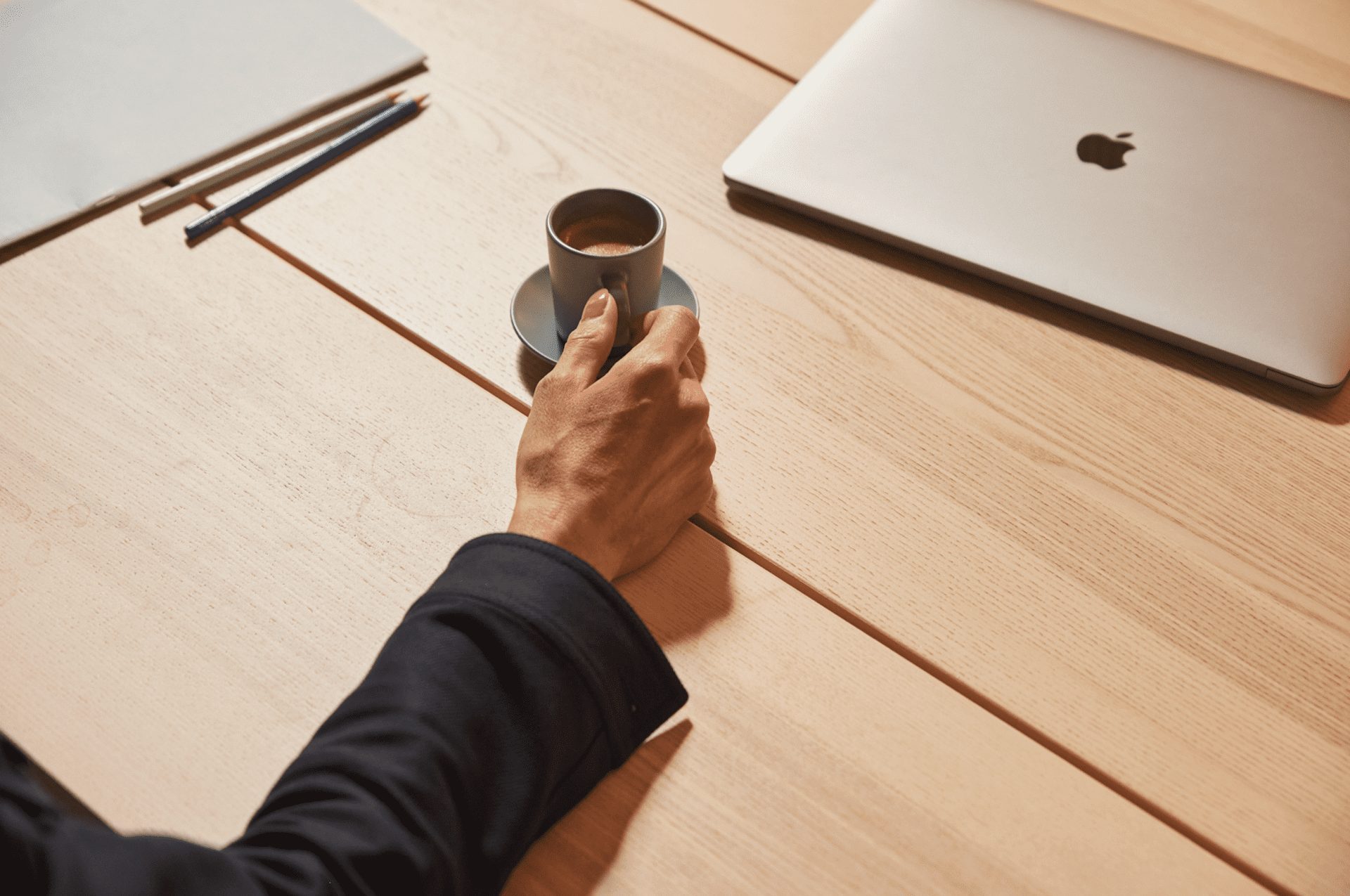
“Traditionally, companies got rid of furniture when their five to 10-year leases were up,” notes Kjellberg. “They might have thought their furniture was outdated and that the office needed a fresh look.”
But Nornorm’s co-founders – who conducted their initial research into the future of workplaces with Ikea – soon discovered that more businesses were becoming aware of the environmental impact of their choices when furnishing their offices. It was a sign that they were moving away from the linear economic model of recklessly pillaging the world’s resources and gradually embracing the circular economy.
The name Nornorm is a conflation of ‘Nordic’, referring to the brand’s aesthetic preference for design in the pared-down Nordic style, which is less likely to date, and the post-Covid state of ‘the new normal’.
The post-Covid climate happens to dovetail with the principles of the circular economy since, with more people working from home, offices are likely to need less furniture, resulting in less waste. “One reason we founded the company was the changes to office design precipitated by the pandemic,” says Kjellberg.
Read more: Why ocean-bound plastic is heading for the office
Nornorm’s key tenet is “Don’t buy office furniture. Subscribe to it”. Given Kjellberg’s background in the digital world, it’s not surprising that Nornorm conceived of offering a subscription-based service. “We looked at how Netflix and Spotify operate,” he says.
The company, which takes inspiration from the circular economy advocated by the Ellen MacArthur Foundation, asked: “What if you could stream office furniture like you can stream music or films? Wouldn’t that reduce the number of desks and chairs going to landfill?”
Nornorm offers three main subscription packages. “The first offers a full office design service,” says Kjellberg. “Clients initiate a live chat with the company via its website, providing basic information on the number of people that will occupy the space as well as its size.
Customers then email a floor plan to Nornorm along with a brief. Around two days later, they receive a proposed, 3D floor plan created by the company’s in-house design team, tailored to their needs, for free.
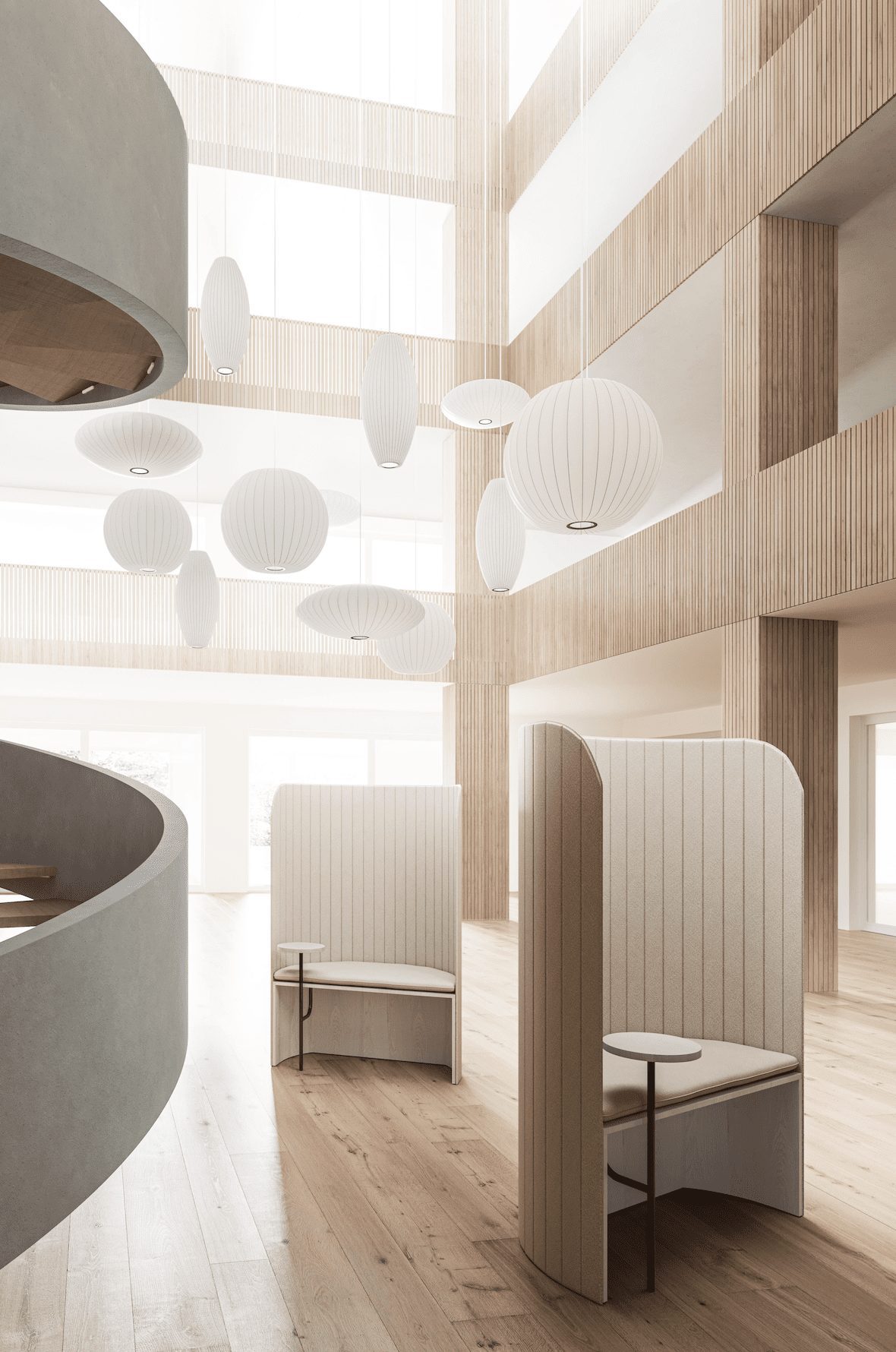
“Once the client has approved the design, Nornorm charges a monthly subscription fee from €3 per sq m, making the scheme more appealing for being affordable. “The second package is a partial office redesign, usually requested when the activities undertaken in offices change.
Office design isn’t a static solution. A telemarketing firm might traditionally just have desks but may decide it also wants a collaborative space requiring meeting facilities. The third package is for home offices. This often caters to the employees of companies that offer their staff the option of working from home.”
The furniture is sourced from companies renowned for sustainability, including Herman Miller – whose rePurpose programme, founded in 2009, has diverted over 27,000 tons (24,500 tonnes) of its goods from landfill by sending them to non-profit organisations – and Hay, many of whose designs come with the Nordic Swan Ecolabel. This label for products from Nordic countries guarantees that they’re free from harmful chemicals.
Read more: What the rural workplace revolution means for the future of work
Approximately 70 per cent of the furniture supplied by Nornorm has been bought new and 30 per cent of it is second-hand, but the idea is for the new furniture to be reused in perpetuity or for as long as possible. Nornorm will also repair the furniture, thereby prolonging its lifecycle.
Offices post-pandemic are evolving, judging by the pieces proving most popular among Nornorm’s customers: “We’re witnessing a big demand for sound-reducing furniture – phone booths and enclosed meeting pods for two to four people,” says Majken Fokdal Persson, the company’s interior design lead.
“We get the feeling a lot of people who’ve been working from home find it almost overwhelming to go back to an open office and wish to integrate this furniture to help resolve this.”
Images courtesy of Nornorm
As featured in OnOffice 156, Autumn 2021. Read a digital version of the issue for free here

